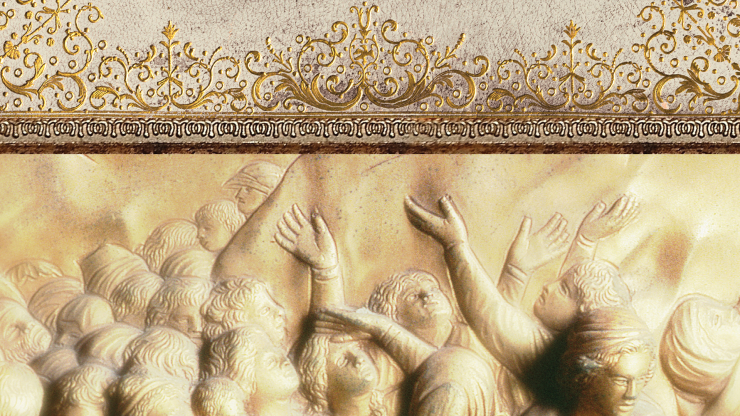The Book of Romans and Its Impact on the Church

2 Min Read
The book of Romans provides a careful exposition of the gospel of Jesus Christ. In this brief clip, R.C. Sproul highlights how this New Testament letter has been used by God to bring conversion and awakening to His people throughout church history.
Transcript:
When we think of the book of Romans, we think first of all of the impact that it has had in the life of the church. We think, for example, of Augustine himself, who had already distinguished himself as an extraordinarily brilliant philosopher. But he had equally distinguished himself as a profligate soul who was living a wild and licentious life until, at the beckoning of children, he picked up a book and just let it fall open. And his eyes came upon a text. And as he read this text, his life was turned upside down as God the Holy Spirit used the words of that text to pierce his soul and transform him to the saint that he became. The book that God used to quicken the soul of Augustine was the book of Romans.
We remember John Wesley giving his testimony to his powerful conversion experience, as he listened to a sermon at Alder’s Gate, where, during the sermon, he said he felt his heart strangely warmed. And the sermon that night was from the book of Romans.
When we think of the agonizing struggle of an Augustinian monk in Germany, who sought desperately in every corner of the church to find peace and assurance of salvation in something that would soothe his conscience from the assault of the law of God that left him, as it were, hanging, suspended by his own testimony over the pit of hell. This scholar, one evening in the tower, was preparing lectures. And as he was doing research into the lectures that he would give on the morrow, he came to an illumined understanding of the Word of God that would change the course of his life and the course of all church history. When Martin Luther came to a fresh understanding of the book of Romans, he said, “When I understood this text,” he said, “the doors of paradise swung open, and I walked through.” It was the book of Romans that awakened Luther to the doctrine of justification by faith alone and persuaded him that this was the article upon which the church stands or falls. As a result of that experience, the book of Romans became the central point of theological controversy in the sixteenth century and became known as the “book of the Reformation.”
Now in the book of Romans, the Apostle Paul gives us his most careful exposition of the gospel itself. The thematic statement of the whole epistle is found in the first chapter, when Paul talks about his own conviction of being a debtor, both to the Jew and to the Greek, to the learned and to the unlearned, that he had this mission to proclaim the gospel to everyone. For in the gospel, which he said was “the power of God unto salvation,” is revealed “the righteousness of God,” which is by faith—not that righteousness by which God himself is internally just and perfect, but that righteousness that is now being made available to those who lack their own righteousness, the righteousness that comes to us as the gift of God as it is given to us from Christ Himself. And the Apostle says, quoting Habakkuk, “For the just shall live by faith,” and that’s the central motif of Romans.